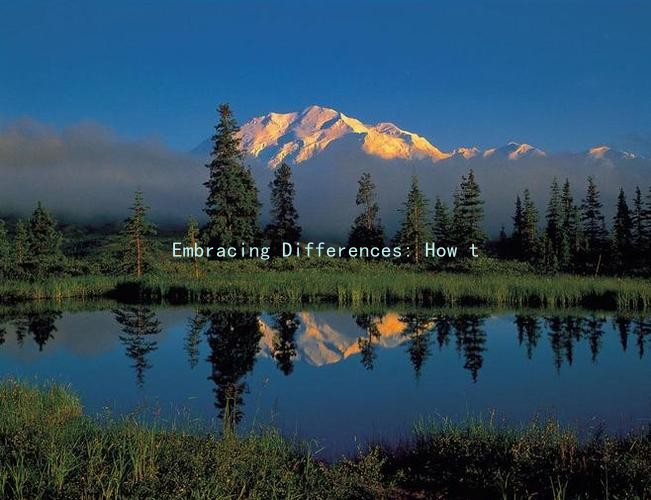Embracing Differences: How to Handle Cultural Taboos in Your Relationship
In an increasingly interconnected world, relationships often bridge cultural divides, bringing together diverse backgrounds, traditions, and perspectives. While this fusion can enrich your partnership, it may also present unique challenges, particularly when it comes to cultural taboos. Understanding and navigating these differences is essential to building a strong, loving relationship.
Firstly, recognize that cultural taboos can vary significantly from one culture to another. What may be considered acceptable in one culture might be deeply frowned upon in another. For instance, discussing family planning, personal finances, or even previous relationships can be taboo in some cultures, while others may encourage openness in these areas. To effectively manage these differences, start with open communication. Having honest discussions about each others cultural backgrounds can help you identify potential sensitivities and establish respectful boundaries.
One useful technique is to ask questions rather than making assumptions. Approaching conversations with curiosity can help you better understand your partners views and experiences. Phrases like, Can you tell me how your family views this issue? or What are some traditions that are important to you? invite sharing and deepen your understanding of each others backgrounds. This technique not only fosters empathy but also strengthens emotional intimacy.
Additionally, showing respect for your partners cultural practices is vital. This means being open to participating in traditions that may differ from your own, whether its celebrating a particular festival, adhering to dietary restrictions, or observing certain rituals. When you make an effort to honor these practices, you signal to your partner that their culture is valued and appreciated.
However, its essential to set boundaries too. While immersion in each other’s cultures is rewarding, you should also discuss what feels comfortable for both of you. If a certain cultural practice conflicts with your values or beliefs, express this gently but firmly. Its crucial to find a middle ground that honors both perspectives. For example, if one partners culture places an emphasis on arranged marriages while the other values individual choice, talk through the implications of this difference and work together to find a solution that respects both worldviews.

Conflict is natural in any relationship, especially when cultures collide. When disagreements arise, approach them as opportunities for growth. Use I statements to express feelings without casting blame. For instance, say, I feel uncomfortable discussing finances openly, rather than, You always make me discuss finances. This approach encourages constructive dialogue rather than defensiveness.
Moreover, seek support when needed. Engaging with cultural resources, such as books, workshops, or counseling, can provide insights and strategies to navigate cultural differences more effectively. These tools can equip you with the knowledge to handle potential challenges and enhance your connection with your partner.
Lastly, celebration plays a critical role in embracing cultural differences. Celebrate the unique aspects of each culture, from food to music to holidays. This not only fosters appreciation but also allows you to create new shared traditions that honor both backgrounds. By blending cultures, you create a richer relationship tapestry that reflects both you and your partners identities.
In closing, handling cultural taboos in a relationship requires patience, empathy, and communication. By embracing differences, asking questions, setting boundaries, and celebrating diversity, you can navigate the complexities of your unique partnership successfully. Ultimately, the ability to appreciate and adapt to each others cultures can lead to a more profound and meaningful relationship that stands the test of time.





